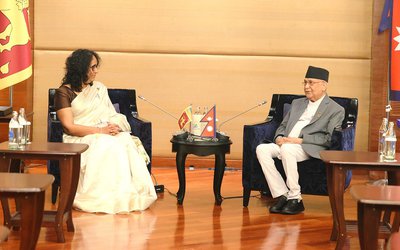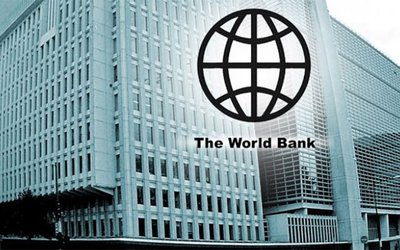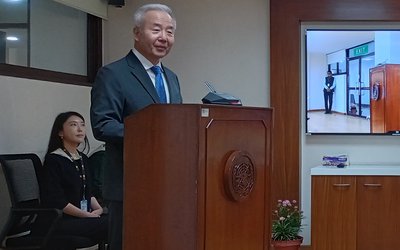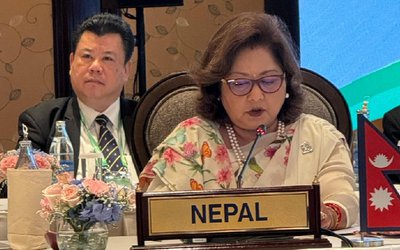
How do you look at the National Consultation of policymakers and civil society leaders on reproductive health and family planning beyond 2014 (ICPD+ 20)?
As Nepal is in the process of evaluating its overall population policy, it is very important for the country’s policymakers, from various ministries, and civil society leaders to exchange their views. The workshop discussed Nepal's agenda and priority for the ICPD beyond 2014 at length.
You also presented a paper on the unmet needs for family planning and policy implications in Nepal, what is your overall observation now?
Of course, the unmet needs for family planning decline with age: from 42 percent, among women aged 15-19, to 13 percent in the oldest age group. However, the gap is still higher in rural areas compared to the urban ones.
Any other trend among the age groups?
Demand for family planning is the highest among women aged 35-39 (88 percent) and lowest among those aged 15-19 (59 percent). Since 2001 survey, over 80 percent of women with unmet needs for family planning intend to use family planning in the future.
As a former chief of the population division and former secretary of the government of Nepal, how do you evaluate the workshop?
The two-day consultative meeting was very important for the government of Nepal. It helped to facilitate the country level dialogue, involving the voices of policymakers, civil society leaders and other development partners. By sending senior participants, the Ministry of Health and Population also showed that it is really serious about the problems.
What do you say of the participants and their exchange of ideas?
It was a high-level gathering of experts, political leaders, former parliamentarians, adolescents and youths as well as senior government officials. This consultation will help the government of Nepal to prepare the documents for regional and global level meetings, related to the ICPD Beyond 2014.
- IME GROUP: Expands Into Paper Industry
- Mar 24, 2025
- CPN UML: Instigated By India
- Mar 23, 2025
- ADB’S CHIEF ECONOMIST: Nepal Reduces Poverty
- Mar 11, 2025
- FM DR. DEUBA: A Successful Visit
- Mar 11, 2025
- MD GHISING: Target Of Personal Grudge
- Mar 09, 2025















